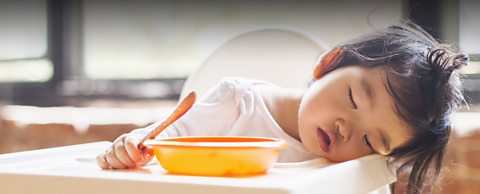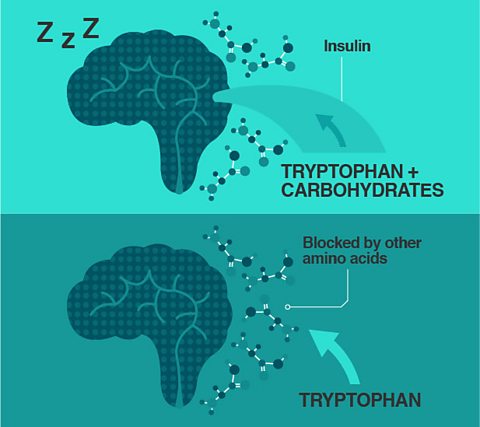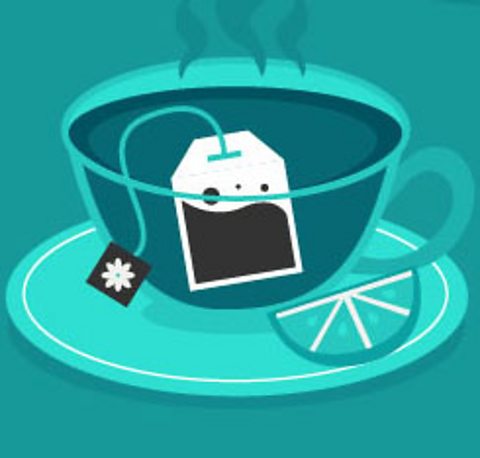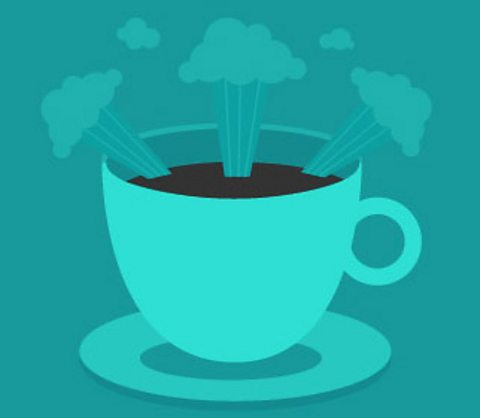What should I eat for a good night's sleep?
By Charlotte Stirling-Reed
One third of us suffer from insomnia at some stage in our lives, and most of us have mild trouble sleeping from time to time. Whether you're struggling to fall asleep, stay asleep, or both, many factors play a role. These include stress, distracting environments and the food you eat.

Have you ever wondered why some foods and drinks make you sleepy while others give you an energy boost? Does cheese give you nightmares? Can warm milk help you sleep? We separate the facts from the fiction and show how tweaking your diet can help you slow down in the evening and sleep soundly throughout the night.
Carbs v protein
Should we consume carbs or protein for a good night's sleep? The answer seems to be both.
Tuck yourself in with tryptophan
Tryptophan is an amino acid that's believed to induce sleep. This is because it is a precursor to the sleep-inducing chemicals serotonin and melatonin, in the brain.

Tryptophan is present in small amounts in most protein foods and in higher amounts in yoghurt, milk, oats, bananas, dates, poultry, eggs and peanuts.
For tryptophan to be effective, it has to cross the blood-brain barrier (the brain's security system). To do this it has to compete with other amino acids. Research suggests that combining tryptophan-rich foods with carbohydrates gives tryptophan an advantage.
Carbohydrates stimulate the release of insulin, which helps to clear other amino acids from the bloodstream and helps tryptophan reach the brain.
More research is needed in this area, and the amount of tryptophan in foods is still relatively small and may only have a modest effect.

The truth about 'sleepy' drinks
Hot chocolate
Hot chocolate is traditionally a bedtime drink. It usually contains caffeine, which is a stimulant, although amounts vary from brand to brand. If you find it difficult to get to sleep, consider switching to a sleepy tea or a malt-based drink.
Warm milk
Milk contains melatonin, a hormone that helps create the urge to fall asleep, but the jury is out on whether it can actually impact on the bodyвҖҷs melatonin levels. Milk also contains the sleep-inducing amino acid tryptophan. Try pouring warm milk over cereal to get a tryptophan hit as the carbohydrates in cereal help tryptophan to pass the blood-brain barrier.
Night cap
The odd night cap wonвҖҷt do you much harm, but if it becomes a habit it can lead to significant problems, including insomnia. Alcohol helps us get to sleep, but causes us to spend less time in REM sleep (the most satisfying type of sleep) and can cause us to wake up during the night.

Sleepy tea
Research shows chamomile increases the level of glycine (a nerve relaxant) in the body. Valerian tea was prescribed for insomnia in ancient Rome, and it may reduce the amount of time it takes to fall asleep and improve sleep quality, according to research. Passionflower has also been shown to improve sleep. ItвҖҷs believed valerian and passionflower increase the brainвҖҷs level of gamma aminobutyric acid (GABA) вҖ“ a chemical that helps us regulate our nerve cells and calms anxiety.

Water
You canвҖҷt get a good night's sleep if you wake up in the middle of the night because youвҖҷre thirsty or need to go to the bathroom. Make sure youвҖҷre drinking enough water during the day to stay hydrated all night. The European Food Safety Authority recommends women drink about 1.6 litres of fluid per day and men 2 litres. That's eight to ten 200ml glasses.
When should you eat?
Research suggests that the time of day you eat may affect your sleep. We all have an internal body clock that tracks the time of day and, it seems, a вҖҳfeeding clockвҖҷ that tracks meal times.
The research shows that when a mouse eats at irregular times its body clock gets out of sync. When food is limited, the feeding clock overrides the body clock, keeping the mouse awake until it locates food. Studies with mice are not necessarily indicative of humans, but it is interesting to note that sleep patterns may be affected by eating patterns.
Get into routine
Sleep is all about routine. Forming regular eating patterns will make it easier to fall asleep in the evening. It is a good idea to eat dinner four hours before going to sleep and establish a ritual such as drinking a sleepy tea before bed.
Are you a lark or an owl?
Research suggests that whether you're a morning or an evening person is determined by your sleep chronotype. The time of day you eat is predictive of your sleep chronotype: larks almost always eat breakfast within half an hour of waking, whereas owls are more likely to skip breakfast and eat late in the evenings.
What foods and drinks steal sleep?

Caffeine
Caffeine can interfere with the process of falling asleep and prevent deep sleep. We all have different tolerance levels to caffeine, so how much we should drink and when varies, but if youвҖҷre struggling to fall asleep you should avoid evening and possibly afternoon coffee. Recent research suggests that coffee may also impact on sleep by slowing down your internal clock. In one study, consuming a double espresso three hours before bedtime delayed the production of melatonin by about 40 minutes.

Sugar
A recent study suggests that a diet high in sugar is bad news when it comes to sleep. The study shows that sugar caused participants to wake up during the night. ThereвҖҷs little research into whether sugar stops you falling asleep, but if you consume a lot of sugary foods and drinks close to bedtime youвҖҷre likely to get a sharp energy boost, which isnвҖҷt ideal.
Cheese
The idea that cheese gives you nightmares has persisted in Britain since at least the 17th Century, but is it true? It has been suggested that the large amounts of tyramine in cheese could be linked to dreaming. Tyramine affects the release of noradrenaline, which is produced in the brain region responsible for REM sleep, and this is related to dreaming. However, lots of foods contain similar levels of tyramine, so there seems to be no unique link between eating cheese and nightmares.
Spicy food
ItвҖҷs believed that spicy food may give you indigestion and raise your core body temperature, both bad news for sleep. Research suggests that a decrease in body temperature triggers a sense that itвҖҷs time to go to sleep. In one study, participants who ate a meal with Tabasco and mustard took longer to fall asleep and slept less compared to nights when they had not consumed a spicy meal. It was noted that on nights when they ate the condiments, they had an elevated body temperature during their first sleep cycle. Hot baths may also help you sleep as your body temperature drops quickly after the bath.
Alcohol
After a night of heavy drinking you may find it easier to fall asleep (or, you know, just pass out), but alcohol disrupts the patterns and cycles that occur during sleep. Drinking alcohol can make you go straight into a deep sleep, but this means you miss out on the first stage of sleep (REM). Over the course of a good nightвҖҷs sleep you should have six to seven REM cycles, but after a night of drinking you may only have one to two. You may also wake up when you transition from initial deep sleep or to go to the bathroom. Alcohol can turn non-snorers into snorers as it affects our breathing.